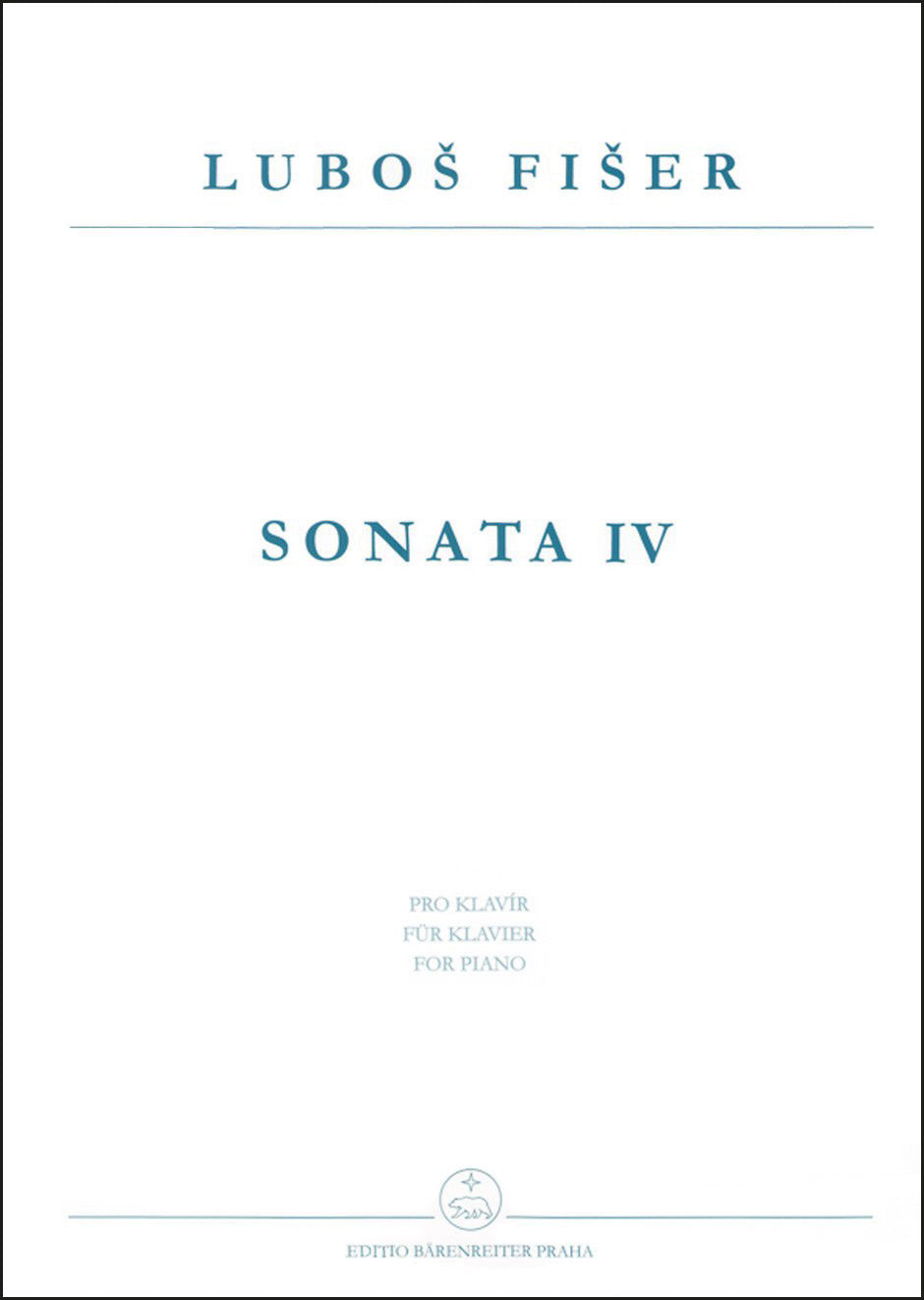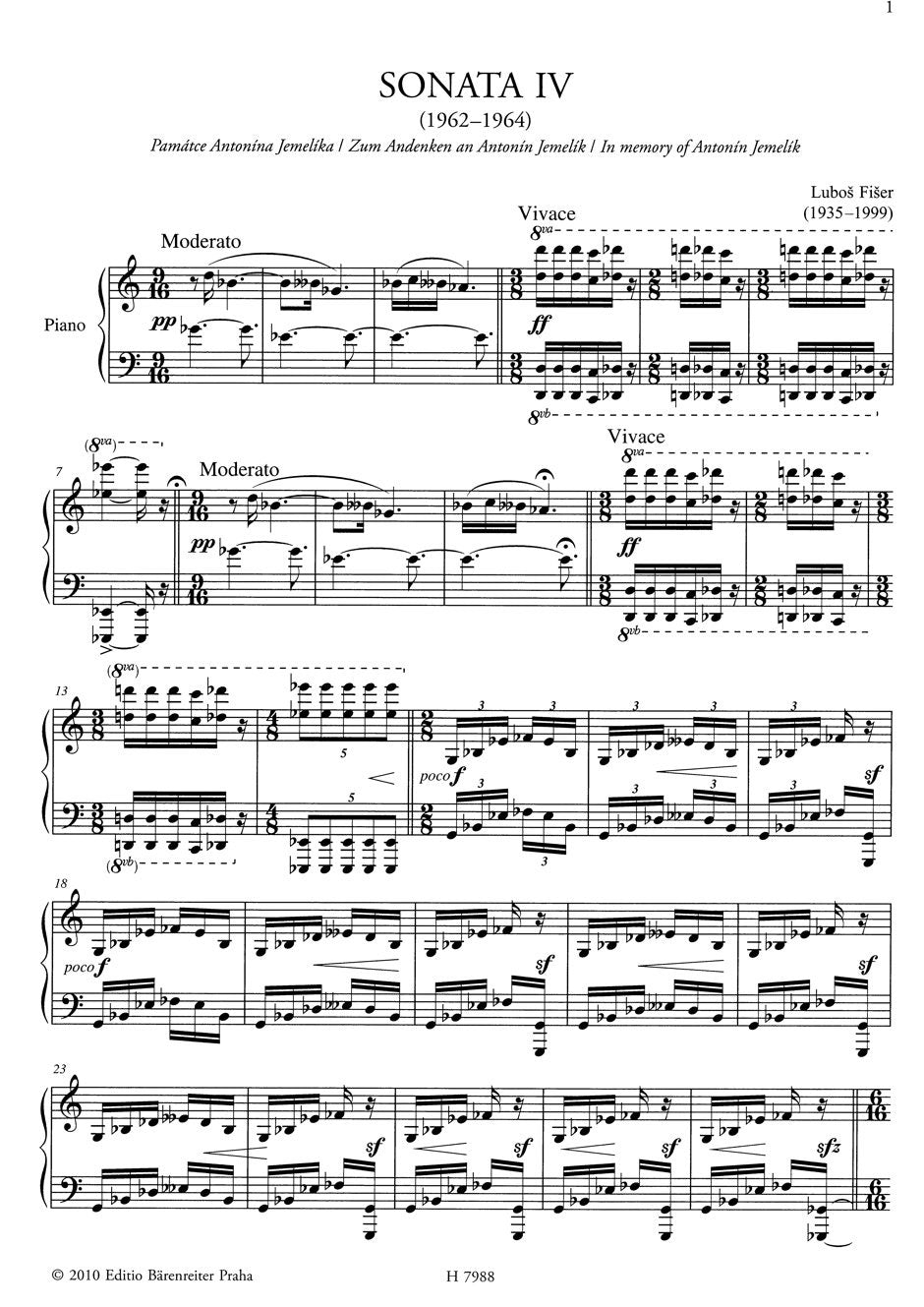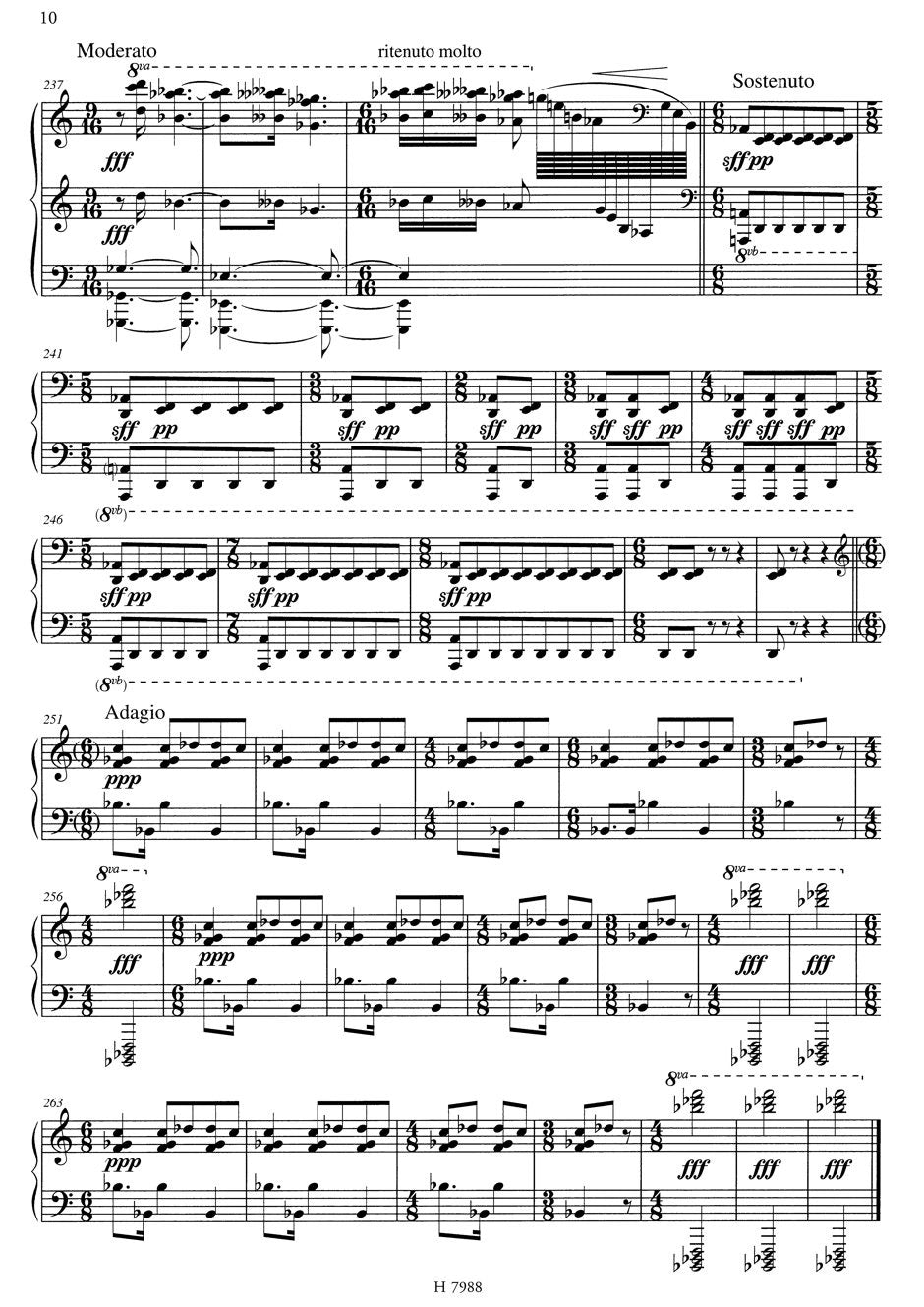Fišer: Piano Sonata No. 4
In stock and typically ships within 1 business day.
- Composer: Luboš Fišer (1935-1999)
- Instrumentation: Piano
- Work: Piano Sonata No. 4
- ISMN:
- Size: 9.3 x 12.2 inches
- Pages: 14
Description
Fišer's fourth piano sonata was written between 1962-1964 and is dedicated to the memory of his friend, the pianist Antonín Jemelík, who died tragically. As a tribute to their friendship the composer incorporated into the introduction a quotation from their favorite work, Piano Sonata No. 10, Op. 70, by Alexander Scriabin. The tragedy of the death of the composer's friend pervades the emotionally intense passage of unison octaves which follows the three-bar quotation.
From a compositional point of view this work is a masterpiece of the mid-Sixties. Written as one movement, the piece is divided into numerous mutually contrasting segments which themselves are clearly grouped into two sections, exposition and development. The individual themes are introduced in the first section and thematically expanded in the second section. The motif treatment lies almost exclusively in the fragmenting or curtailing of the theme, or in the use of a combination of several themes, for the most part brief and eloquent. This compositional method, together with a clear-cut manner of execution, mainly semitonal melody and sharply contrastive dynamics, lends force and transparency to the piece.
Publishers use a lot of words to describe what they sell, and we know it can be confusing. We've tried to be as clear as possible to make sure you get exactly what you are looking for. Below are descriptions of the terms that we use to describe the various formats that music often comes in.
Choral Score
A score for vocalists that only contains the vocal lines. The instrumental parts are not there for reference. Generally, cheaper than a vocal score and requires multiple copies for purchase.
Facsimile
Reproductions of the original hand-written scores from the composer.
Full Score
For ensemble music, this indicates that the edition contains all parts on a single system (there are not separate parts for each player). In larger ensembles, this is for the conductor.
Hardcover
Hardbound. Generally either linen-covered or half-leather.
Orchestral Parts
Similar to a wind set, this is a collection of parts. In the case of strings, the numbers listed are the number of copies included, though generally these are available individually (often with minimum quantities required).
Paperback
When publishers offer multiple bindings (e.g. hardcover) or study scores, this is the "standard" version. If you're planning to play the music, this is probably what you want.
Performance / Playing Score
A score of the music containing all parts on one system, intended for players to share. There are not separate parts for each player.
Set of Parts
For ensemble music, this indicates that there are separate individual parts for each player.
Solo Part with Piano Reduction
For solo pieces with orchestra, this is a version that contains a piano reduction of the orchestra parts. For piano pieces, two copies are typically needed for performance.
Study Score
A small (think choral size) copy of the complete score meant for studying, and not playing. They make great add-ons when learning concertos and small chamber works.
Vocal Score
A score prepared for vocalists that includes the piano/organ part or a reduction of the instrumental parts.
Wind Set
For orchestral music, this is a collection of wind and percussion parts. The specific quantities of each instrument are notated.
With Audio
In addition to the printed music, the edition contains recordings of the pieces. This may be an included CD, or access to files on the internet.
With / Without Fingering (Markings)
Some publishers prepare two copies - a pure Urtext edition that includes no fingering (or bowing) suggestions and a lightly edited version that includes a minimal number of editorial markings.




